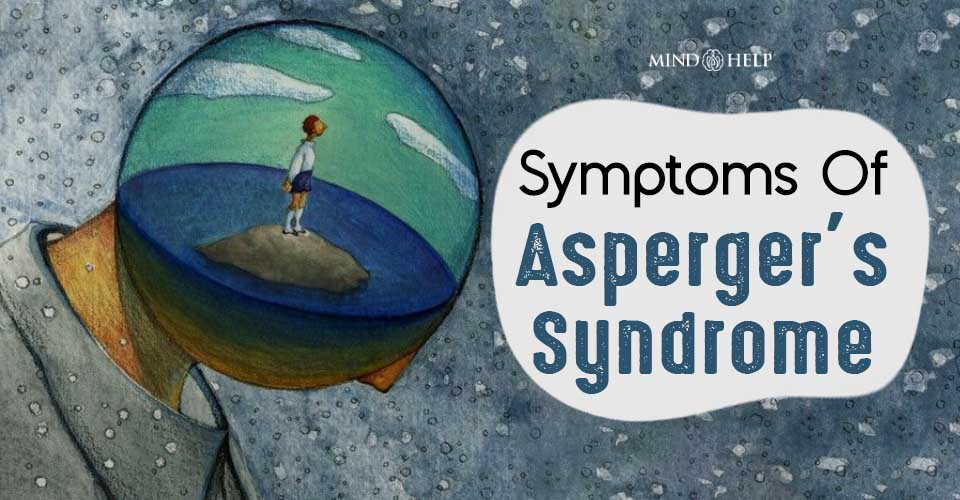Asperger’s Syndrome (AS) is a neurodevelopmental condition that was historically considered a subtype of autism spectrum disorder (ASD). People with Asperger’s often have average or above-average intelligence but experience challenges in social interaction, communication, and flexibility in thinking and behavior. An affected individual may have a variety of symptoms of Asperger’s syndrome.
Table of Contents
Key Features Include:
- Difficulty understanding social cues and engaging in typical social interactions
- Restricted or repetitive patterns of behavior and intense focus on specific interests
- Sensory sensitivities (e.g., to light, sound, or touch)
- Challenges with motor coordination and emotional regulation
- Language development that is typically not significantly delayed, but may sound formal or unusual
Important Note:
Asperger’s Syndrome is no longer a separate diagnosis in many clinical systems (like the DSM-5, used in the U.S.). Instead, it is now part of the broader category of Autism Spectrum Disorder (ASD), with varying levels of severity.
However, the term Asperger’s is still widely used informally and by many individuals who identify with that profile.
Asperger’s syndrome (AS) is a neurodevelopmental disorder that falls under the autism spectrum disorder (ASD) 1 Hodges, H., Fealko, C., & Soares, N. (2020). Autism spectrum disorder: definition, epidemiology, causes, and clinical evaluation. Translational pediatrics, 9(Suppl 1), S55–S65. https://doi.org/10.21037/tp.2019.09.09 umbrella. The affected individual, child or adult, may have a variety of symptoms of Asperger’s syndrome—leading to a unique experience for each sufferer.
Therefore, identifying and understanding these symptoms is crucial to help people with Asperger’s syndrome navigate all aspects of their daily life, including work, relationships, and self-care.
Common Symptoms Of Asperger’s Syndrome
What are the symptoms of asperger’s syndrome? Research and clinical practice 2 Hosseini, S. A., & Molla, M. (2021). Asperger Syndrome. PubMed; StatPearls Publishing. Available from: https://www.ncbi.nlm.nih.gov/books/NBK557548/ categorise the common signs and main symptoms of Asperger’s syndrome into different domains, namely:
1. Social interaction
Individuals with Asperger’s Syndrome (AS) often face significant challenges in social interaction and communication, including:
- Difficulty interpreting social cues such as tone of voice, facial expressions, or body language
- Struggles in forming and maintaining friendships
- Challenges in initiating or sustaining two-way conversations
- Limited ability to understand others’ emotions, thoughts, or viewpoints
- Difficulty using or understanding nonverbal communication (e.g., eye contact, gestures)
- A narrow range of interests that may limit shared social experiences
- Trouble understanding or following social norms, rules, or expectations
- Reduced capacity for empathy or perspective-taking
- A tendency to come across as socially awkward or inappropriate
2. Restricted and repetitive behaviours
Individuals with symptoms of Asperger’s Syndrome often display rigid and repetitive behavioral patterns, including:
- Engaging in repetitive movements such as rocking, hand flapping, or spinning
- A strong adherence to routines and a fixation on specific rituals
- Intense and narrowly focused interests in particular subjects or activities
- Limited imaginative play and a lack of interest in social or peer-based activities
- Difficulty adjusting to new or unfamiliar situations
- Repetitive or stereotyped behaviors, such as lining up objects, stacking items, or repeating phrases
- Strong resistance to changes in their environment or daily routines
- Inflexible thinking patterns and difficulty considering alternative perspectives or approaches
3. Sensory sensitivities
Symptoms of Asperger’s Syndrome related to sensory processing difficulties may include:
- Hypersensitivity or hyposensitivity to sensory stimuli such as lights, sounds, textures, tastes, or smells
- Strong reactions or aversions to certain sensory inputs, which may feel overwhelming or distressing
- Sensory overload, often resulting in anxiety, meltdowns, or withdrawal in stimulating environments
- Sensory-seeking behaviors, such as an intense fascination with lights, spinning objects, or certain textures
- Visible signs of discomfort, including covering ears, avoiding eye contact with bright lights, or retreating from noisy settings
4. Speech and language
Individuals with Asperger’s Syndrome often experience a range of speech and language challenges, including:
- Unusual or atypical speech patterns, such as a flat, monotone, or overly formal tone
- Pragmatic language difficulties, including trouble understanding social cues, sarcasm, humor, or figurative language
- Delayed or impaired language development during early childhood
- Limited use of nonverbal cues, such as gestures or facial expressions, to express emotions or intentions
- Echolalia, or the repetition of words or phrases from others or media, often without fully grasping their meaning
- Difficulty interpreting and using nonverbal communication, such as body language, tone of voice, or facial expressions
- Challenges maintaining appropriate eye contact or using a suitable tone and rhythm while speaking
5. Motor coordination
Individuals with Asperger’s Syndrome often experience motor coordination difficulties that can affect daily activities, physical tasks, and participation in sports. These may include:
- Impaired coordination or noticeable clumsiness in everyday movements
- Difficulty with both fine and gross motor skills, such as tying shoelaces, using utensils, or catching and throwing a ball
- Challenges with tasks requiring precision, like handwriting or buttoning clothes
- Problems with balance, posture, and spatial awareness, leading to awkward or unsteady movements
6. Emotional regulation
Individuals with Asperger’s Syndrome often experience challenges related to emotional regulation, including:
- Difficulty recognizing, understanding, and managing their own emotions
- Emotional outbursts or meltdowns, particularly in response to sensory overload or unexpected changes
- Limited coping strategies, making self-regulation and emotional flexibility difficult
- Struggles with managing frustration, anger, anxiety, or stress, often leading to heightened emotional responses
- Mood swings, emotional sensitivity, and discomfort in emotionally charged or socially complex situations
Read More About Asperger’s Syndrome Here
Asperger’s Syndrome In Children
Symptoms of Asperger’s syndrome in children typically manifest in early childhood (usually around the age of 2-3 years) and may vary in severity and presentation among individuals. Some common symptoms 3 Mirkovic, B., Pinabel, F., & Cohen, D. (2016). Quand évoquer le syndrome d’Asperger chez l’enfant, l’adolescent et le jeune adulte ? [Asperger’s syndrome symptoms in children, adolescents and young adults]. La Revue du praticien, 66(1), 83–90. include:
- Difficulties with social interaction and communication
- Repetitive behaviours and rigid routines
- Problems in understanding social cues, nonverbal communication, and maintaining friendships
- Limited interests or preoccupations with specific topics
- Speech difficulties, including speaking in a formal or monotone manner
- Motor coordination challenges
- sensory sensitivities
- Poor emotional regulation
However, it’s important to note that not all children with Asperger’s syndrome would exhibit the same symptoms, and the severity and presentation of symptoms may vary widely. Some children may have mild Asperger’s symptoms, while others may experience more significant challenges that affect their social, academic, and emotional well-being.
Signs Of Asperger’s In Adults
What are the symptoms of asperger’s syndrome in adults? Asperger’s symptoms in adults may continue from childhood or may present themselves for the first time in adulthood. Common symptoms 4 Roy, M., Dillo, W., Emrich, H. M., & Ohlmeier, M. D. (2009). Asperger’s syndrome in adulthood. Deutsches Arzteblatt international, 106(5), 59–64. https://doi.org/10.3238/arztebl.2009.0059 include:
- Difficulties in social interaction
- Communication challenges
- Rigid rituals and routines
- Sensory processing issues
- Relationship difficulties and employment challenges
- Intense interests and special obsessions
- Difficulties in emotional regulation
- Impaired speech
- Low self-esteem and confidence
- High levels of depression and anxiety
Much like the AS symptoms in children, Asperger’s symptoms in women and men also display a wide variation. Some individuals may even have 5 Mazzone, L., Ruta, L., & Reale, L. (2012). Psychiatric comorbidities in asperger syndrome and high functioning autism: diagnostic challenges. Annals of general psychiatry, 11(1), 16. https://doi.org/10.1186/1744-859X-11-16 high-functioning Asperger’s symptoms. Nonetheless, understanding and managing these symptoms can be crucial for affected adults to thrive in various aspects of their daily life, including work, relationships, and self-care.
How To Identify Asperger’s Syndrome
It’s important to note that individuals with Asperger’s syndrome may present with varying degrees of severity and combinations of the aforementioned symptoms.
Identifying the signs 6 Faridi, F., & Khosrowabadi, R. (2017). Behavioral, Cognitive and Neural Markers of Asperger Syndrome. Basic and clinical neuroscience, 8(5), 349–359. https://doi.org/10.18869/nirp.bcn.8.5.349 and symptoms of Asperger’s syndrome can be done through careful observation and assessment by qualified healthcare professionals or specialists in neurodevelopmental disorders.
Asperger’s syndrome was once considered a separate diagnosis within the autism spectrum, but it is now classified as part of the broader autism spectrum disorder (ASD) 7 de Giambattista, C., Ventura, P., Trerotoli, P., Margari, M., Palumbi, R., & Margari, L. (2019). Subtyping the Autism Spectrum Disorder: Comparison of Children with High Functioning Autism and Asperger Syndrome. Journal of autism and developmental disorders, 49(1), 138–150. https://doi.org/10.1007/s10803-018-3689-4 in the Diagnostic and Statistical Manual of Mental Disorders (DSM-5).
To receive a diagnosis of Asperger’s syndrome, an individual must meet specific diagnostic criteria outlined in the DSM-5. The evaluation process for Asperger’s syndrome often includes a physical exam, interviews, questionnaires, behavioural observations, and standardised assessments.
Takeaway
If you observe signs of Asperger’s Syndrome in your child or a loved one, it’s crucial to seek professional guidance for an accurate diagnosis and timely support.
Consulting a doctor or mental health specialist can offer valuable insight, resources, and a clear path forward. With early intervention and the right support systems in place, individuals with ASD can learn to manage their symptoms effectively and lead fulfilling, healthier lives.
At A Glance
- Asperger’s syndrome (AS) is a type of autism spectrum disorder.
- It is characterized by a range of symptoms that impact behavioral and cognitive patterns, as well as social relationships.
- The symptoms of Asperger’s syndrome can be categorized into difficult social interactions, repetitive behavior, sensory processing issues, poor motor coordination, and impaired emotional regulation.
- Signs of Asperger’s in adults and children vary in different conditions.
- Identifying and understanding these symptoms can lead to the early and proper diagnosis of AS.
- Effective treatment options for Asperger’s syndrome include therapy as well as medications to manage associated symptoms.
Frequently Asked Questions (FAQs)
1. When do the signs of Asperger’s syndrome first appear?
The signs of Asperger’s syndrome typically first appear in early childhood, usually around 2-3 years, although some signs may become more noticeable as the child grows older.
2. What is the most distinguishing symptom of Asperger’s syndrome?
The most distinguishing symptom of Asperger’s syndrome is difficulty with social interaction—including challenges in understanding social cues, maintaining friendships, and engaging in reciprocal communication.
3. What can be misdiagnosed as Asperger’s syndrome?
Neurodevelopmental disorders (such as autism spectrum disorder), mental health disorders (like ADHD or social anxiety disorder), and introverted personality traits can often get misdiagnosed as Asperger’s syndrome.
4. What are the physical traits of Asperger’s syndrome?
Asperger’s syndrome does not typically present with specific physical traits. It is a neurodevelopmental disorder characterized by challenges in social interaction, communication, and behavior, rather than by physical characteristics.














